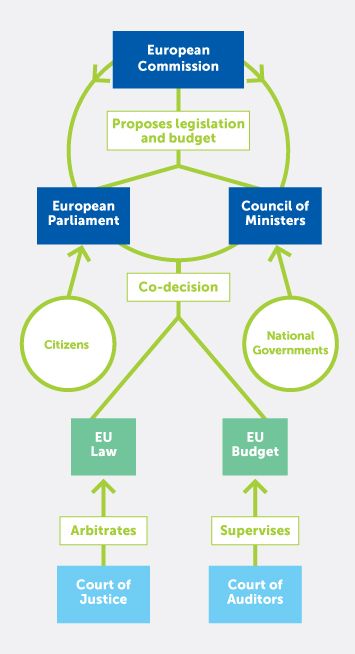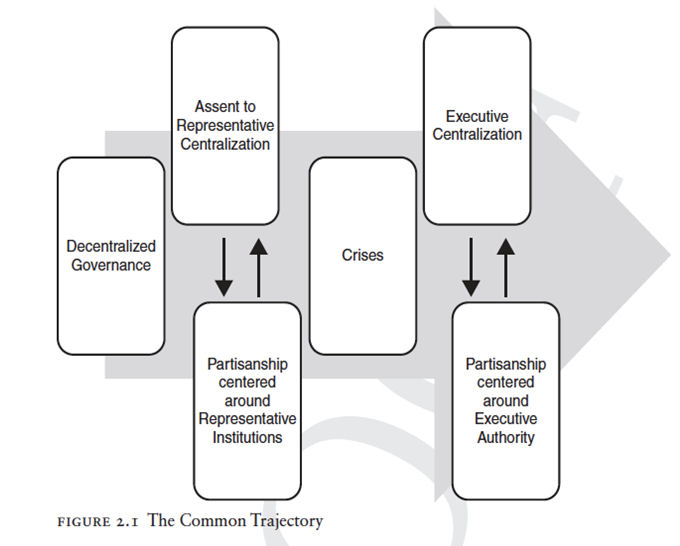Decision (European Union)
A decision ( earlier decision, Eng. Decision ) is a legal act of the European Union and as such part of the secondary law of the Union. Decisions shall be taken depending on the subject of the decision on any of the measures provided for in the Treaties.
Decisions may be addressed to the general public at certain recipients (such as Member States, companies or individuals) or. They are noisy Article 288 TFEU in its entirety, with decisions that are addressed to specific recipients, for they are binding. In exceptional cases, can develop a favorable effect on third parties decisions addressed to individual recipients, including to third parties. This is the case if a directed to a Member State of the European Union's decision contains a sufficiently clear obligation of that State against individual citizens.
Decisions are always assumed when a decision would be binding, but there is no case for the adoption of regulations or directives. They are intended by the Treaties, for example, in the following cases:
- Than individual decisions (see below),
- For appointments (eg, members of the European Commission, the Committee of the Regions and the European Economic and Social Committee shall be appointed by resolution )
- Under the Common Foreign and Security Policy ( see below),
- As part of the negotiation and conclusion of international agreements (Art. 218 TFEU),
- Measures relating to the Union's institutions, such as bylaws,
- Simplified amendments to the Treaties, such as the transmission of matters in the ordinary legislative procedure or the transition from unanimity to qualified majority voting in the Council.
Individual decisions
Individual decisions of the European Union carried out by resolutions. In this case it complies with the administrative records in domestic law. Individual decisions addressed to specific recipients (such as Member States, companies or individuals) and are binding only on them. They are then usually adopted by the European Commission, partly also the other institutions of the European Union.
As an example of the EU competition law decisions can be listed: Here is decided by decisions on the approval of mergers of companies. Other cases in which decisions of the Commission shall be open to genetic engineering and hazardous substances. In both cases it is a question in each case, to authorize the distribution of a specific genetic product or a potentially dangerous substance, to prohibit or restrict.
Individual cases may also affect Member States as such, such as fines imposed pursuant to Article 126 TFEU may be imposed by the Council of the European Union because of excessive deficits. In some cases, Member States may be authorized by a decision to deviate from certain regulations or directives.
Common Foreign and Security Policy
In the area of common foreign and security policy decisions are taken. Sun, 22 EU Treaty, the European Council, acting under Article decisions on the strategic interests of the European Union (formerly Common Strategy ).
The Council of the European Union adopts pursuant to Article 25 of the EU Treaty on decisions about:
- The actions undertaken by the Union (formerly Joint Actions )
- The positions taken by the Union (formerly common positions ) and
- The details of the implementation of these decisions.
History
Under the third pillar (police and judicial cooperation in criminal matters) of Article 29-42 of the EU Treaty were also taken decisions in the version prior to the Treaty of Lisbon by the Council of the European Union on the basis. These decisions complied with the Regulations under the first pillar (European Communities ). The existing decisions are considered as such, until they are modified in accordance with the Treaties as modified by the Treaty of Lisbon. In particular, the powers of the European Court of Justice with regard to decisions are still to be determined until their first change after the contracts in the version prior to the Treaty of Lisbon provisions foreseen. This transitional provision shall expire five years after the entry into force of the Lisbon Treaty override ..










